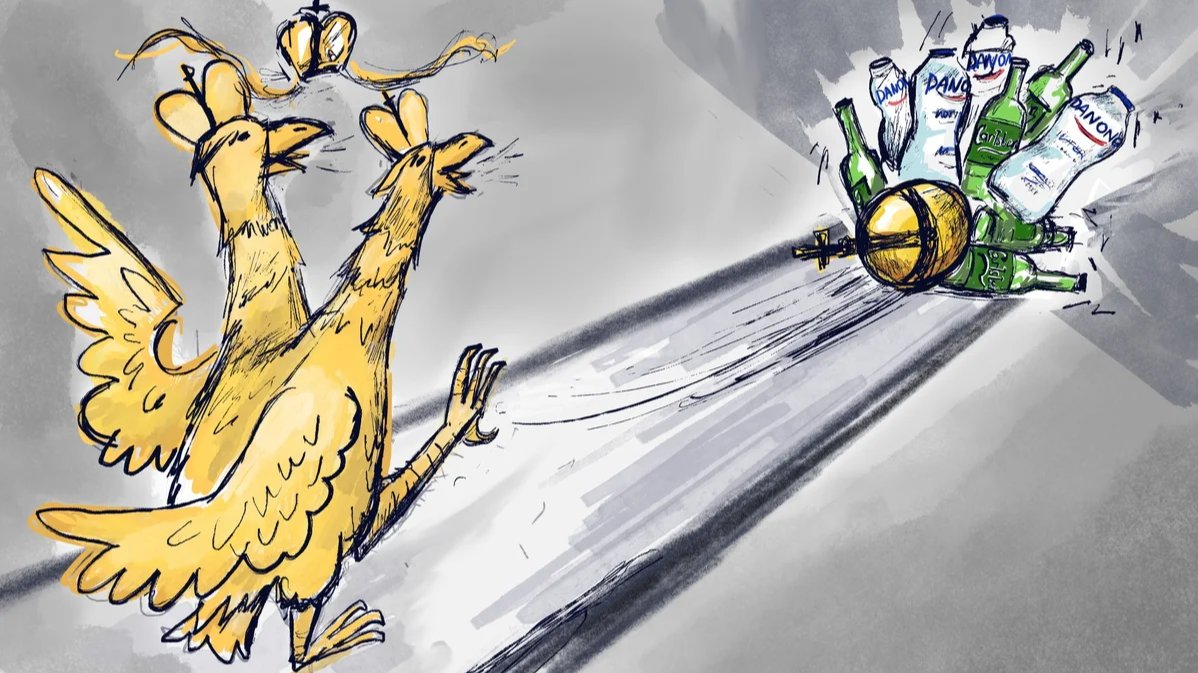For the last year and a half, foreign businesses have been gradually leaving Russia and suffering losses, offering huge discounts to new owners and paying contributions to the Russian budget. But it seems that this is not the limit: Russian authorities have recently changed their strategy and started “temporarily” nationalising the property of Western investors. Novaya-Europe explains how businessmen close to the Kremlin gained control over Danone and Carlsberg and how much they will earn from the new assets.
Who benefits from the ‘temporary’ seizure of foreign assets?
A decree signed by Vladimir Putin transferred the assets of the French Danone (Danone Russia, Trade) and the Danish Carlsberg (Baltika) under the control of Rosimushchestvo, Russia’s state property management agency. The decree allows for the temporary state management of foreign assets in response to the seizure of Russian property abroad.
The first version of the decree on “measures in response to unfriendly and unlawful actions of the United States and coconspirator countries” was drafted back in April. At that time, two companies fell under its scope: Finnish state-owned Fortum and German Uniper. The latter was bought out by the German government in 2022 amid the energy crisis.
Putin’s spokesperson Dmitry Peskov called the decree a “mirror” response, as Germany had earlier placed the assets of Gazprom and Rosneft under external management, allegedly to prevent threats to energy security. Executives from Rosneft were eventually put in charge of Fortum and Uniper. “The formulation of the presidential decree is such that the management will be carried out by companies that suffered from the actions of unfriendly countries,” Alexey Moiseyev, deputy head of the Russian Finance Ministry, explained at the time. “In other words, the ones who suffered will be the ones to take control.”
Despite the April precedent, the “temporary” nationalisation of Danone and Carlsberg marks an important change in the state’s policy towards foreign business: unlike Uniper and Fortum, Danon and Carlsberg are not state-owned.
According to the decree, foreigners are still listed as owners of the companies, so formally this is still a temporary seizure and not an instance of expropriation or nationalisation,
Grigory Mashanov, an anti-corruption lawyer, told Novaya-Europe.
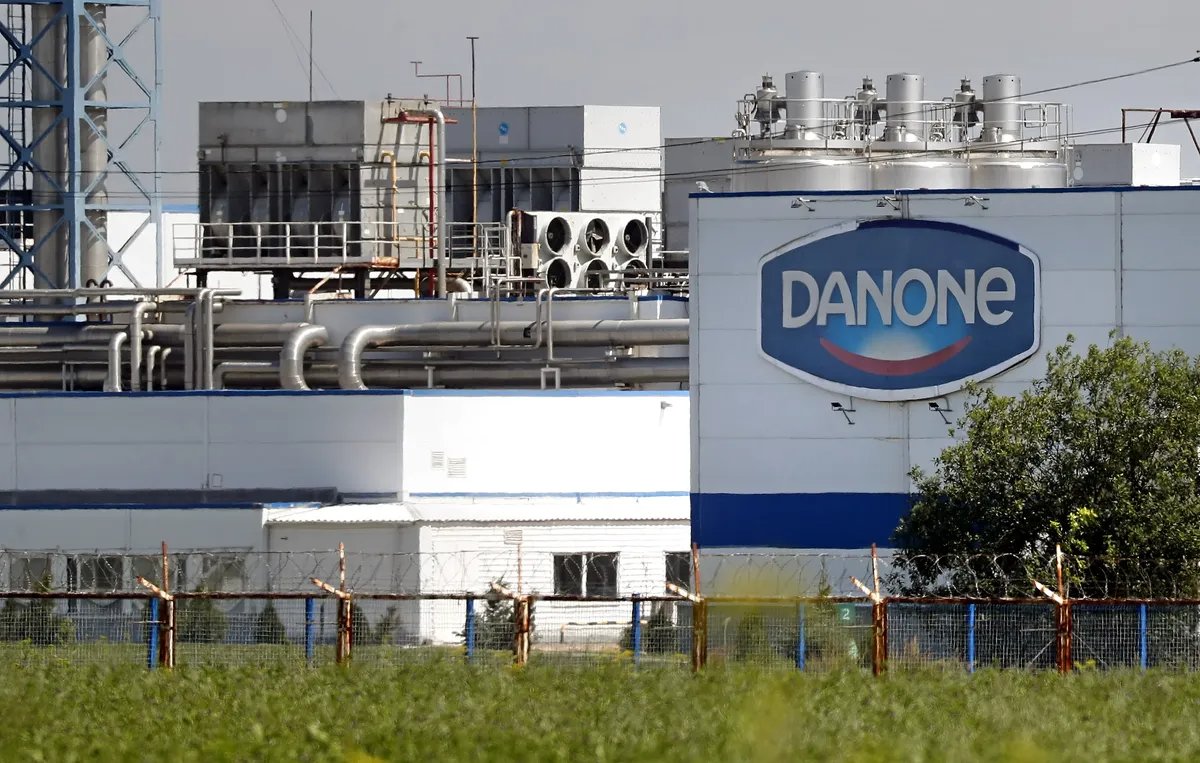
Danon’s factory in Chekhov, Moscow region, Russia, 17 July, 2023. Photo: EPA-EFE/MAXIM SHIPENKOV
But the practical differences between these procedures may be minor. Neither the terms nor a specific reason for the “temporary” seizure have been outlined. Besides, the new management will have the right to appropriate the assets’ profits, so there is little sense in a complete alienation of property from foreign companies in the near future, experts believe.
One of the ways for the new management to earn money is to artificially reduce profits through pseudo-expenses, says Mashanov. In such a scenario, “expenses” can mask the withdrawal of funds from the company, including through the incorporation of affiliated contractors into supply chains. In addition, it is possible to look for an excuse to pursue claims against foreign investors — for example, by “uncovering” tax violations or deficiencies in product quality.
If foreign companies decide that they have no prospects of regaining control of the property, they can turn to international courts and aim for compensation at the expense of the assets of Russian state companies in the West, Mashanov claims.
In addition to the temporary management mechanism, the authorities are preparing another measure. According to Interfax’s sources, authorities are discussing a decree that will give the state the right to buy shares in strategic companies belonging to foreign businesses leaving Russia. The right will have priority over the preferences of others.
What the new owners will get
The Carlsberg and Danone units were so profitable and well-managed that “any buyer could simply take advantage of the cash flow without doing anything,” sources told the Financial Times.
The companies’ statements confirm this view. Baltika’s revenue for 2022 grew by 22% and net profits increased by 86% to almost 10 billion roubles (€100 million). Danone’s revenue grew by 5%, but net profit fell by 39% to 6 billion roubles (€60 million).
Baltika owns eight breweries. With a 27% market share, it ranked second in Russia after Belgium’s AB InBev Efes. In addition to Baltika and Carlsberg, the company bottles beer under the Tuborg, Zatecky Gus, Holsten, and Zhigulevskoye brands.
Taking into account a 50% discount, Russian experts estimated a possible sale of the company at €2 billion. The net assets of the company at the end of 2022 were estimated at 62 billion rubles (€620 million). At the beginning of the war, the value of the Carlsberg unit was estimated at almost 3 billion euros. Before the war, Russia accounted for 9% of the company’s earnings.
Danone has 18 dairy plants in Russia. Its share of the dairy market was about 9% and was close to that of Wimm-Bill-Dann (owned by PepsiCo), with whom they share first place. Danone dominates the drinking yoghurt market with a 73% share.
A possible sale of Danone was estimated at €1 billion (discount included). The company’s net assets in Russia at the end of 2022 were estimated at 24 billion rubles (€240 million).
Kadyrov’s dairy business
Yakub Zakriev, 32, has been appointed the new general director of Danone Russia. He has a lengthy list of regalia — from being the “dear nephew” of Ramzan Kadyrov to holding the positions of Deputy Prime Minister and Minister of Agriculture of Chechnya. He took his first high-ranking post at the age of 23, when he became deputy head of Kadyrov’s administration. Zakriev climbed the career ladder fast, and even spent two years as mayor of Grozny, the capital of Chechnya.
Zakriev’s appointment shows that “the team of the Chechen leader, Hero of Russia Ramzan Kadyrov are talented administrators and successful managers,” Chechen Minister for National Policy and Information, Akhmed Dudayev, said.
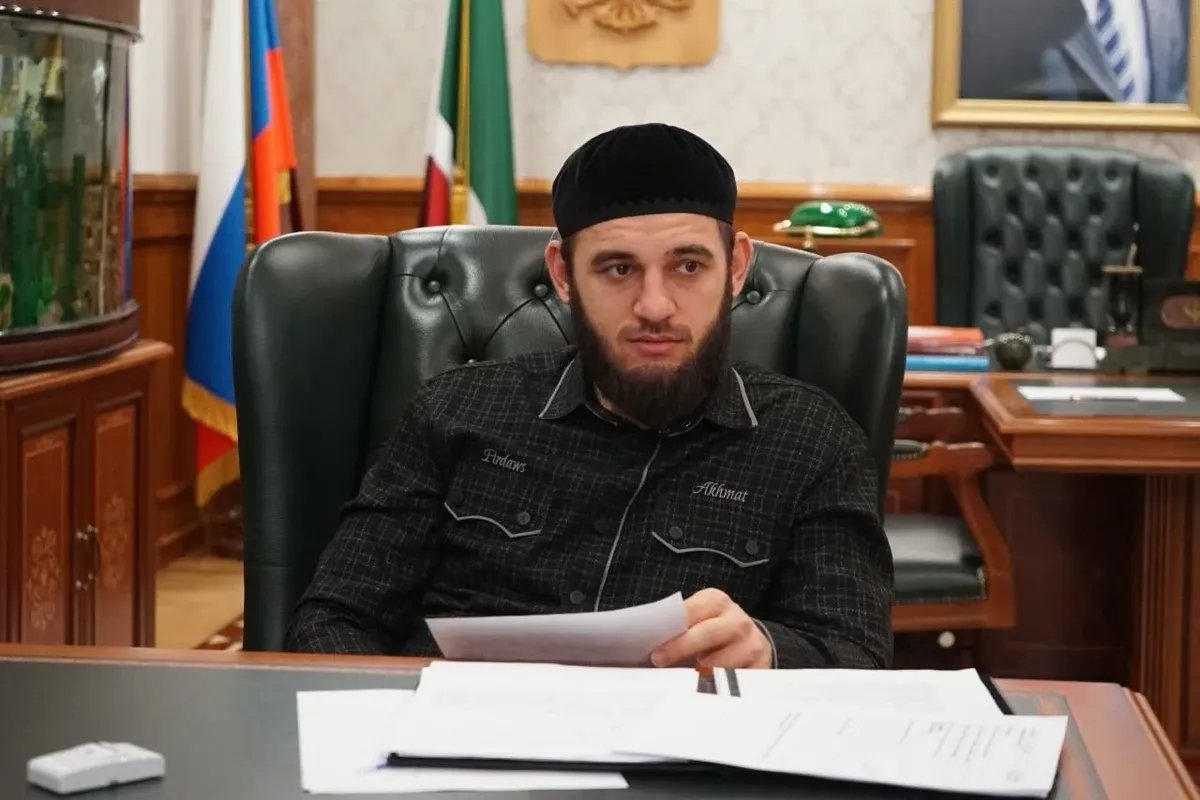
Yakub Zakriev. Photo: Twitter
Two weeks before the appointment at Danone, Putin awarded Zakriev the title “Honoured Worker of Russia’s Agro-Industrial Complex”. Last month, Russian Agriculture Minister Dmitry Patrushev, whose father Nikolay is the Secretary of the Security Council and former head of the FSB, visited Chechnya.
It was the younger Patrushev, who oversees the food industry, who fast tracked the transfer of the two companies under external management, people close to the decision told the Financial Times.
“Patrushev’s task is to ensure that this asset survives the redistribution of ownership, but in the right hands. This is too big a player for the Russian market,” says Ilya Shumanov, head of Transparency International Russia.
“The appointed people will most likely not be the real operators. They have no experience in managing dairy products or large assets in general.”
Shumanov believes that Kadyrov, through his people, will act as an intermediary in the search for a new main investor. The negotiations with Kadyrov’s men will likely be conducted by large businessmen, from Vadim Moshkovich (Rusagro) and Vladimir Evtushenkov (AFK Sistema) to former Agriculture Minister and head of the Krasnodar region Alexander Tkachyov, as well as businessmen associated with the government of Tatarstan, who have laid claim to Danone’s assets. Shumanov says that Kadyrov’s people will receive a “service fee” or a stake in the business for such mediation.
After Danone was placed under external management, the company’s board of directors was also changed. Its new lineup confirms that the company’s management will be shared between people from Chechnya and businessmen from Tatarstan who are close to Kadyrov.
According to Milknews, the chairman of the new board of directors is Ruslan Alisultanov, who served as Chechnya’s deputy agriculture minister. Two relatives of influential people from Tatarstan also joined the board.
The first is 29-year-old Mintimer Mingazov, the owner of the Vamin dairy empire, according to local media reports. Mingazov allegedly inherited it from his father Vagiz, a former member of the Russian Federation Council.
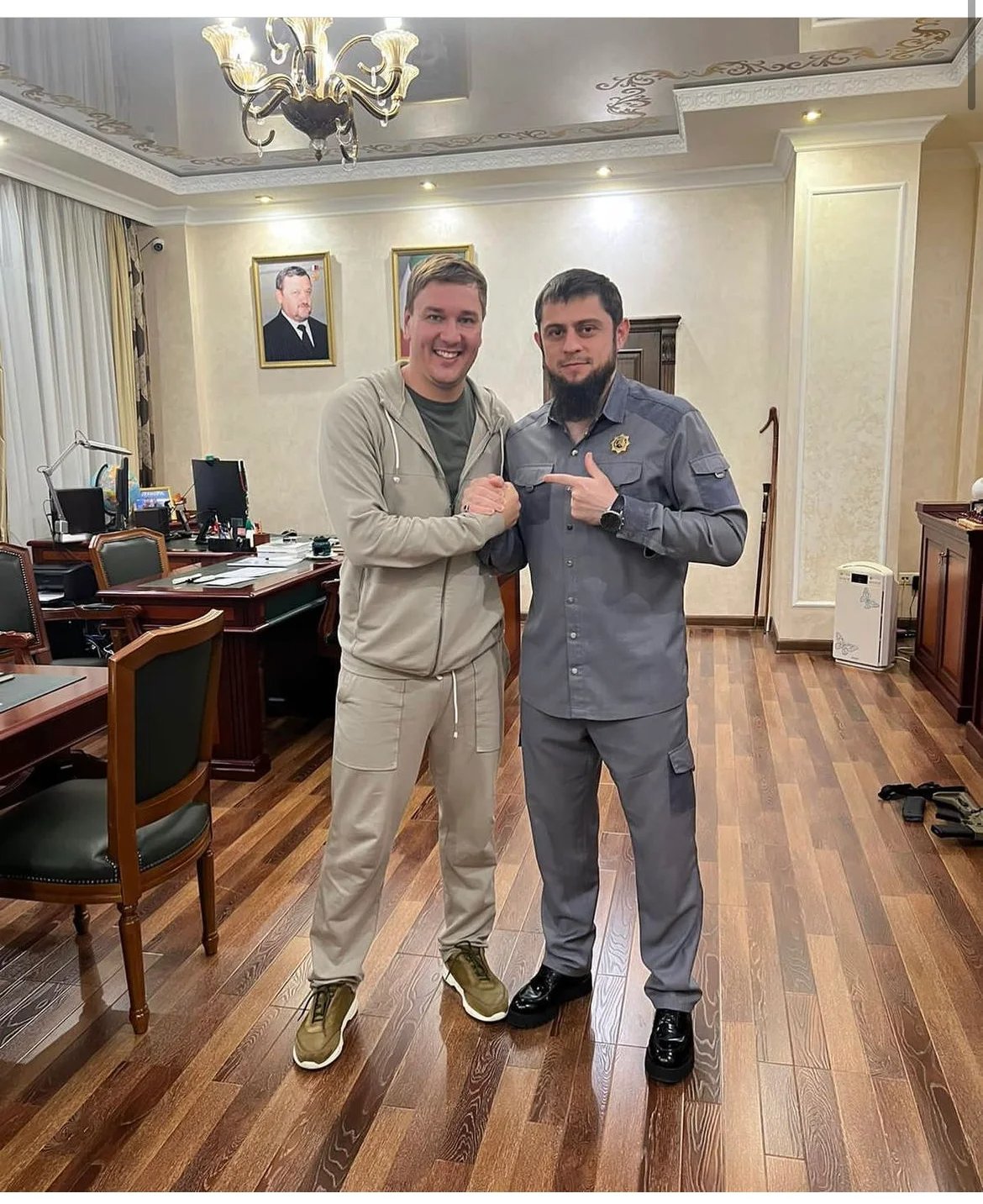
Mintimer Mingazov (on the left). Photo: Instagram
Local media report that the operations of the Mingazovs' factories are surrounded by controversy. Over 10 years ago, five banks accused Vamin of fraudulently obtaining loans and illegally withdrawing assets, after which a criminal fraud case was opened. In 2013, Vamin filed for bankruptcy, and in 2016 Vagiz Mingazov himself was declared bankrupt after a lawsuit was filed by VTB Bank.
In the end, the company went to his son, the news outlet Idel.Realii writes. According to SPARK-Interfax, the younger Mingazov now owns 100% of Vamin Tatarstan. Over the years, farmers have criticised Vamin for purchasing milk at extremely low prices, while employees of Vamin’s plants complained about being paid with products instead of money.
The second Tatarstan native on the board of directors is the 27-year-old Yakov Khachanyan. He is the son-in-law of construction magnate Ravil Ziganshin, who owns the company PSO Kazan, one of Russia’s largest construction companies. Idel.Realii writes that he is considered the ‘“purse” of Rustam Minnikhanov, the head of Tatarstan.
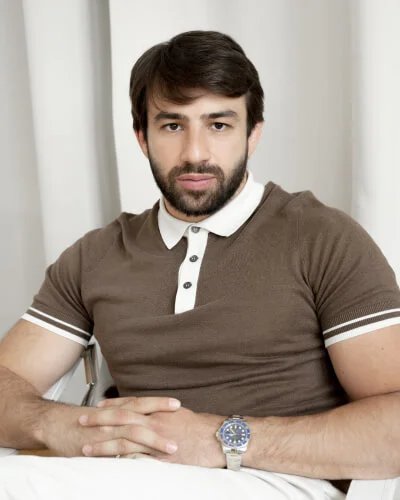
Yakov Khachanyan. Photo: social networks
Khachanyan is also said to be the nephew of former Armenian President and Prime Minister Serzh Sargsyan, the Tatarstan newspaper Business Online reports. He allegedly spent most of his childhood abroad and went to university in Russia, writing his master’s thesis on the topic of “countering corruption in state authorities”.
Khachanyan was on the federal wanted list in a robbery case. According to one version of events, he stole a watch from his debtor.
Because of this, police attempted to arrest him in 2021 at Kazan airport. Business Online writes that his “car dragged the policemen along for several metres before leaving, unhindered”. Khachanyan was never detained.
Both Khachanyan and Mingazov have close connections to Kadyrov. Khachanyan co-operates with his “charity foundation”, features in photographs with Kadyrov, and local media cover his visits to Chechnya calling him a blogger. Mingazov visited Chechnya at the same time as Patrushev. From that visit, he posted a photo with Chechen Minister for National Policy and Information Akhmed Dudayev, with the two calling each other “dear brothers” in the comments. Khachanyan and Mingazov have also visited the occupied territories of Ukraine and were awarded honour certificates by head of the Donetsk “people’s republic “ (“DPR”) Denis Pushilin for their “services to the DPR” (1,2).
Army, judo and beer
Taimuraz Bolloyev, who is well connected in the Kremlin, has been appointed general director of Baltika. He ran the company from 1991 to 2004, and it was under Bolloyev that Baltika’s legendary “numbered” line of beer varieties was developed.
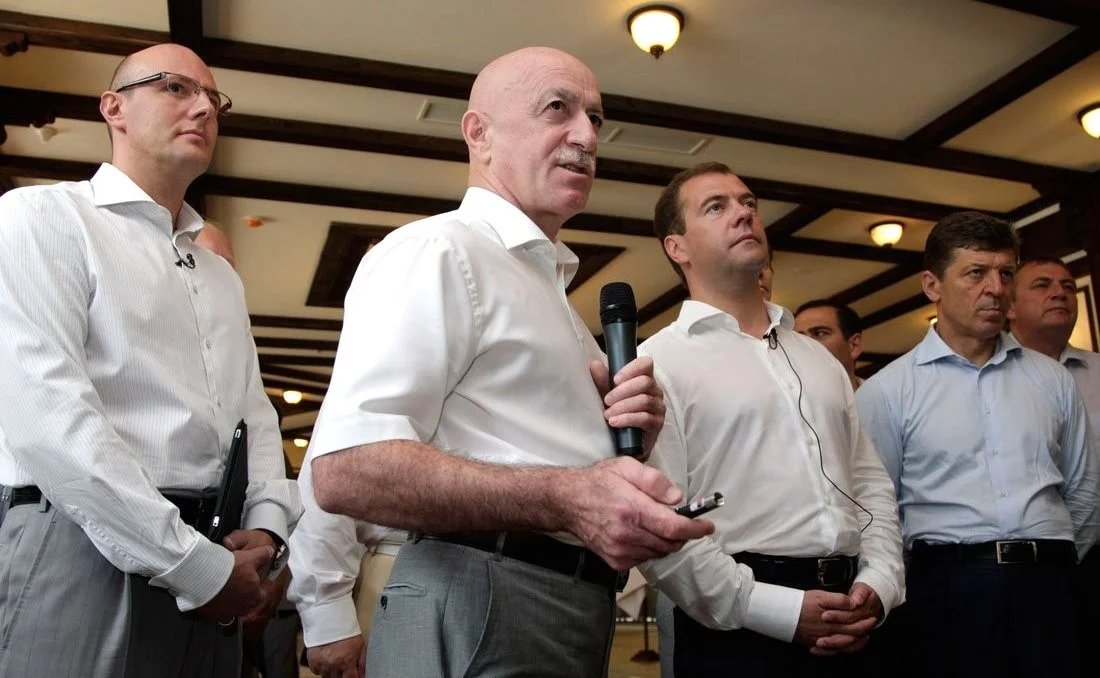
Taimuraz Bolloyev (second from the left) and Dmitry Medvedev during a visit to the ski resort Rosa Khutor. Photo: kremlin.ru
Bolloyev is said to be a good acquaintance of people in Putin’s inner circle — oligarchs Yury Kovalchuk and Arkady Rotenberg. Together with Putin and Rotenberg, he is a member of the management of the Yawara-Neva judo club in St. Petersburg. Bolloyev also has a joint business with Yury Kovalchuk, owning a 10% stake in the Gelendzhik airport and another 40% in Kovalchuk’s Rossiya Bank.
Journalist Farida Rustamova also writes in her blog that Bolloyev is a long-time friend of Putin. Bolloyev recounted how Putin helped him in the 90s to get an appointment with St. Petersburg mayor Anatoly Sobchak and to find the first investors for Baltika. The businessman was Putin’s trusted representative in the 2000 and 2004 presidential elections. After leaving Baltika, Bolloyev founded BTK Group, which became the sole supplier of clothing for the Russian army.
Privatising the loot
Several Russian businessmen, who wished to remain anonymous, call the current redistribution of property “a second privatisation”.
This creates a milieu of beneficiaries in Russia that could become the regime’s new backbone, political analyst Ekaterina Kurbangaleyeva wrote in Carnegie Politika. In a conversation with Novaya-Europe, she emphasised the emergence of beneficiaries on various levels — from billionaires associated with the authorities and large state contractors to high-ranking law enforcers and regional businessmen who have made fortunes on state contracts.
“These people realise, of course, that they are tied to the state,” she said. “The regime’s solidification will manifest itself in their non-interference in politics. They will support whatever is proposed.”
Join us in rebuilding Novaya Gazeta Europe
The Russian government has banned independent media. We were forced to leave our country in order to keep doing our job, telling our readers about what is going on Russia, Ukraine and Europe.
We will continue fighting against warfare and dictatorship. We believe that freedom of speech is the most efficient antidote against tyranny. Support us financially to help us fight for peace and freedom.
By clicking the Support button, you agree to the processing of your personal data.
To cancel a regular donation, please write to [email protected]
